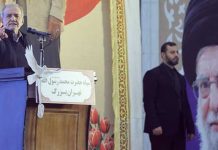BEIJING, Oct 24 (dna)::Chinese President Xi Jinping has said that the ongoing BRICS summit has decided to invite a number of nations to become partner countries.
In a speech addressing the summit in Kazan, Russia, Xi hailed the decision as another important development in the course of BRICS development. During a small-group meeting, Xi welcomed new members to the BRICS family and invited many countries to become partner countries, China Daily reported.
Xi pointed out that the enlargement of BRICS is a major milestone in its development history and a landmark event in the evolution of the international situation. It is for their shared pursuit and for the overarching trend of peace and development that BRICS countries have come together, he said.
Stressing that the world is undergoing accelerated changes unseen in a century, marked by new trends of multipolarity and the risks of a “new Cold War,” Xi said BRICS countries should seize the historical opportunity, take proactive steps, remain committed to the original aspiration and mission of openness, inclusiveness and win-win cooperation, conform to the general trend of the rise of the Global South, seek common ground while reserving differences, work in concert to further consolidate common values, safeguard common interests, and strengthen BRICS countries through unity.
“We must work together to build BRICS into a primary channel for strengthening solidarity and cooperation among Global South nations and a vanguard for advancing global governance reform,” Xi said.
He stressed that the more turbulent the world is, the more BRICS countries should uphold the banner of peace, development and win-win cooperation, refining the essence of BRICS and demonstrating its strength. BRICS countries should raise the voice of peace, advocating a new path to security that features dialogue over confrontation and partnership over alliance, he added.
Xi urged BRICS countries to jointly pursue a path of development, advocate a universally beneficial and inclusive economic globalization, and stay committed to the principle of common development. He said BRICS countries should consolidate the foundation of cooperation, deepen cooperation in traditional areas such as agriculture, energy, minerals, economy and trade, expand cooperation in emerging areas such as green, low-carbon and artificial intelligence, and safeguard trade, investment and financial security.
The Chinese president then attended a large-scale meeting, made important statements on BRICS’ future development and put forward five suggestions.
“As the world enters a new period defined by turbulence and transformation, we are confronted with pivotal choices that will shape our future. Should we allow the world to descend into the abyss of disorder and chaos, or should we strive to steer it back on the path of peace and development?” Xi said.
He stressed that the more tumultuous our times become, the more firmly we must stand at the forefront, exhibiting tenacity, demonstrating the audacity to pioneer and displaying the wisdom to adapt, adding that China is willing to work with all BRICS countries to open a new horizon in the high-quality development of greater BRICS cooperation.
“We should build a BRICS committed to peace, and we must all act as defenders of common security,” Xi said. Only by embracing the vision of common, comprehensive, cooperative and sustainable security can we pave the way for universal security, he added.
Xi urged the BRICS countries to uphold the three key principles: no expansion of the battlefields, no escalation of hostilities, and no fanning flames, and strive for swift de-escalation of the situation in Ukraine.
He also urged BRICS countries to promote an immediate ceasefire in Gaza and make unremitting efforts toward a comprehensive, just and lasting resolution of the Palestinian question.
“We should build a BRICS committed to innovation, and we must all act as pioneers of high-quality development,” Xi said, adding, “We must keep pace with the times and foster new quality productive forces.”
Xi said China has recently launched a China-BRICS Artificial Intelligence Development and Cooperation Center and will establish a BRICS Deep-Sea Resources International Research Center, a China Center for Cooperation on Development of Special Economic Zones in BRICS Countries, a China Center for BRICS Industrial Competencies, and a BRICS Digital Ecosystem Cooperation Network, welcoming active participation from all interested parties.
“We should build a BRICS committed to green development, and we must all act as promoters of sustainable development,” Xi said.
He noted that China’s high-quality production capacity, as exemplified by its electric vehicles, lithium batteries and photovoltaic products, provides a significant boost to global green development.
Xi said China is willing to expand cooperation with BRICS countries in green industries, clean energy and green mining, and promote green development through the entire industrial chain, to increase the “green quotient” of our cooperation and upgrade the quality of our development.
“We should build a BRICS committed to justice, and we must all act as forerunners in reforming global governance,” Xi said.
He said the international power dynamics are undergoing profound changes, but global governance reform has lagged for a long time, urging BRICS countries to champion true multilateralism and adhere to the vision of global governance characterized by extensive consultation, joint contribution, and shared benefits.
Xi said BRICS countries must ensure that global governance reform is guided by the principles of fairness, justice, openness and inclusiveness, and enhance the representation and voice of developing nations in global governance.
Xi said BRICS countries should promote the connectivity of financial infrastructure, apply high standards of financial security and expand and strengthen the New Development Bank, ensuring that the international financial system more effectively reflects the changes in the global economic landscape.
“We should build a BRICS committed to closer people-to-people exchanges, and we must all act as advocates for harmonious coexistence among all civilizations,” Xi said.
Stressing that it is important that BRICS countries promote the spirit of inclusiveness and harmonious coexistence among civilizations and enhance the exchange of governance experiences among BRICS countries, Xi said he is delighted to see that the initiative for BRICS digital education cooperation has become a reality.
China will implement a capacity-building program for BRICS digital education, open 10 learning centers in BRICS countries in the next five years, and provide training opportunities for 1,000 local education administrators, teachers and students.
China is willing to work with BRICS countries to open a new horizon in the high-quality development of greater BRICS cooperation, and jointly promote the building of a community with a shared future for mankind, Xi concluded.
Under the theme of “Strengthening Multilateralism for Just Global Development and Security,” the participating leaders exchanged in-depth views on BRICS cooperation and major international issues of common interest.
The leaders made positive comments on the development of BRICS institutions and the important role they have played in addressing global challenges, expressing the belief that BRICS countries, with their large populations, rich resources, huge development potential, growing appeal and international influence, have become a model of multilateralism.
They called on BRICS countries to uphold the BRICS spirit, strengthen solidarity and coordination, deepen the strategic partnership within greater BRICS, enhance cooperation in politics and security, economy, trade and finance, people-to-people and cultural exchanges, promote an equal and orderly multipolar world, universally beneficial and inclusive economic globalization, and sustainable development of the world, and further increase the voice and representation of the Global South in international affairs, and promote the building of a more just and equitable international order.
The leaders vowed to safeguard multilateralism, uphold the core role of the United Nations in the international system, and support the United Nations in playing an important role in global governance such as artificial intelligence.
They also expressed commitment to peacefully resolving disputes through dialogue and consultation, support all efforts conducive to a peaceful settlement of crisis, and respect the legitimate security concerns of all countries. The leaders agreed to promote reform of the existing international economic and financial architecture and build the New Development Bank into a new type of multilateral development bank for the 21st century.
They also commended the UN General Assembly for adopting relevant resolutions on the China-proposed International Day for Dialogue among Civilizations, calling for respect for the diversity of world civilizations and strengthening exchanges and mutual learning among different civilizations.
The Kazan Declaration of the 16th BRICS Summit was issued and the establishment of BRICS partners was announced at the summit.
During the summit, the BRICS leaders also heard reports on the work of the President of the New Development Bank Dilma Rousseff and other heads of BRICS institutions.
Awais discusses energy cooperation with Iranian counterpart
QINGDAO (CHINA), Oct 24 (dna):Federal Minister for Power, Sardar Awais Leghari, met with the Iranian Energy Minister Abbas Ali Abadi on the sidelines of the Third Belt & Road Ministerial Conference held in Qingdao, China.
Minister Awais Leghari underscored the importance of cross-border energy projects in boosting connectivity and trade, said a press release issued here Thursday.
Both sides discussed future collaboration, particularly focusing on the development of electricity projects in Gwadar, Balochistan.
Exchanging views on the need for enhanced energy connectivity amongst the regional countries, both sides underlined the importance of strengthening energy cooperation in power plants operations and maintenance.
They emphasized the need for regular coordination and communication.
Both the ministers also discussed that effective plant management was essential for sustaining energy output and meeting the growing demands of the region.

















